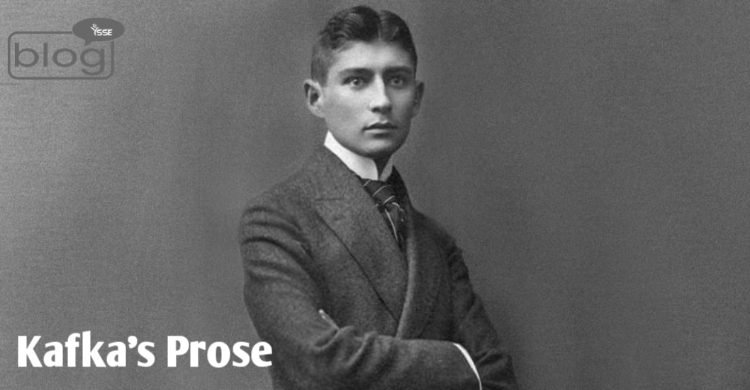A German-speaking author of Czech descent, Franz Kafka’s mysterious and fantastical prose permanently altered the literary landscape.
Continually captivating readers across the globe, his works frequently delve into themes of bureaucracy, alienation, and nihilism.
Exploring Kafka’s literary imagination reveals a terrifying and intricate universe where the lines between reality and the fantastic become blurry.
The surrealist and ambiguous literary style of Franz Kafka draws readers into a maze of doubt and self-reflection. Kafka delves into the issue of estrangement in works such as “The Metamorphosis“, where Gregor Samsa is turned into a gigantic insect.
This transformation symbolises the existential crisis and alienation that people feel in today’s world.
Kafka manages to evoke a feeling of uneasiness and anxiety that remains long after the narrative concludes by paying close attention to psychological depth and minute details.
The dehumanising impacts of bureaucracy on individuals are central to Kafka’s prose. Without ever knowing what he did wrong, Josef K., the protagonist of “The Trial,” becomes entangled in a nightmare of legal procedures.
The absurdity and arbitrariness of power systems are reflected in Kafka’s depiction of the complex bureaucracy, which renders individuals helpless in the face of faceless powers.
This theme speaks to readers who are now dealing with the psychological effects of modern bureaucracy and its complexity.
Kafka’s use of symbolism allows his writings to be better understood by allowing readers to apply different perspectives.
The recurring motif of the castle in “The Castle” represents an unattainable objective or distant figure of authority, emphasising the fruitless pursuit of purpose and inclusion in a world controlled by illusive powers.
Similarly, the doorkeeper in “Before the Law” stands for the seemingly endless roadblocks that people face when trying to reach the light at the end of the tunnel.
By using these symbols, Kafka delves into the existential crisis of being human and the quest for significance in a universe that appears despondent.
The way Kafka’s writing can make you feel both existentially terrified and awestruck is one of his most remarkable literary traits.
The line between reality and fiction becomes increasingly blurry in his writings as they typically portray everyday occurrences that progressively deteriorate into bizarre and absurd circumstances.
Kafka delves on themes of artistic integrity and self-deprivation in “The Hunger Artist,” as the protagonist’s fruitless pursuit of acknowledgment in a society that disregards his art is explored.
Readers struggling to find their place in a world that seems to be getting more and more disjointed will relate to this existential crisis.
No matter where they are or what time it is, Kafka’s creative imagination has inspired generations of artists, authors, and intellectuals.
His investigations into existential questions and the human condition are just as pertinent now as they were when he was alive.
Kafka challenges readers to face the existential idiocy of being alive and to welcome the ambiguity and uncertainty that life brings through his eerie writing and mysterious stories.
Finally, the intricacies of the contemporary world and the depths of the human mind are laid bare in Kafka’s writing.
Kafka forces readers to confront the existential problems that are innate to being human by means of his mysterious and bizarre stories.
His vivid imagination in literature has always had an impact, taking readers on a path of self-exploration and contemplation.
Delving further into Kafka’s writing forces us to face the deepest secrets of life and the everlasting strength of the human mind.
To read more contents like this click here.
Writer
Jarin Anan Tanha
Intern, Content Writing Department,
YSSE

